What are the best dog breeds for seniors?
Hello, fellow dog lovers! It’s a truth universally acknowledged that a life well-lived is a life shared with a dog. Choosing the right canine companion becomes even more vital as we, or our loved ones, gracefully progress into our golden years.
Why, you ask? The right dog breed can add invaluable companionship, joy, and even health benefits to a senior’s life. It’s like adding a dash of wagging sunshine to everyday life!
You might wonder, “What makes a dog breed right for seniors?” That’s a great question; we’re here to help answer it. Selecting the best dog breed for seniors isn’t a one-size-fits-all answer.
It’s more like a custom-tailored coat that needs to consider several factors. It’s an exciting journey that we promise is worth every step.
First, we need to think about the dog breed’s temperament. We’re looking for calm and easygoing breeds, ones that won’t knock over Grandma while she’s making her morning coffee.
We also want to find naturally affectionate and friendly breeds. Who doesn’t love a good cuddle and a loyal friend?
Next up is the dog’s size and activity level. While there’s no denying the charm of a lively German Shepherd, their energy levels might be a bit much for some seniors.
Instead, some might opt for smaller or less energetic breeds that don’t require marathon-like walks or constant play. After all, we want our canine companions to bring joy, not exhaustion!
Last but not least, we have to consider the breed’s health and lifespan. We all know the heartache that comes with losing a pet, so ideally, we want to choose breeds known for their longevity and generally good health.
Choosing the right dog breed for seniors might seem complicated, but don’t worry; we’re in this together.
As we go through this guide, we’ll discuss these factors more in-depth and reveal the breeds that are a paw-fect match for seniors. While nothing is written in stone, we’ve chosen five best dog breeds for seniors in three categories: small, medium, and large breeds.
So, grab a drink, and let’s dive into the world of dog breeds! Trust us; it’s a pretty wonderful world.
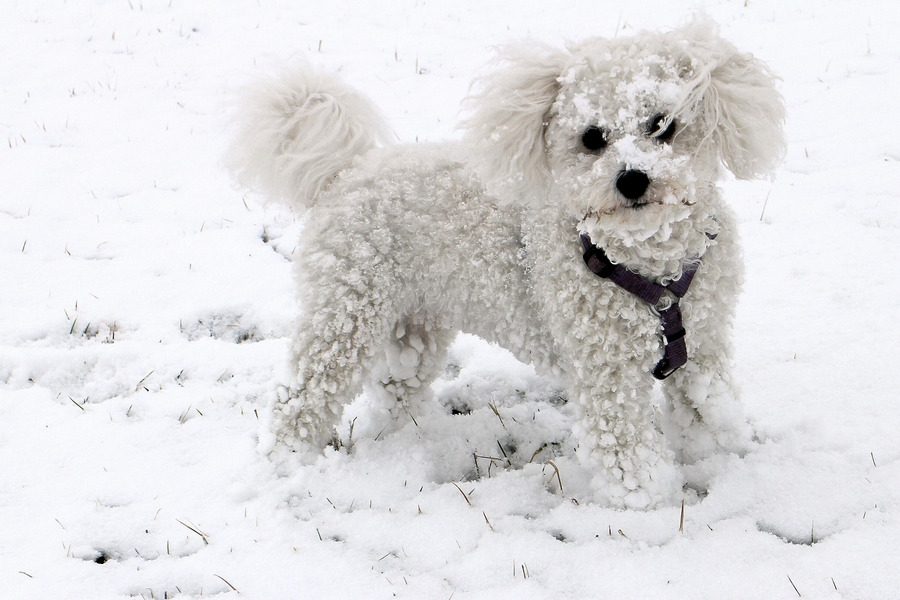
Small Dog Breeds for Seniors
There’s a unique charm that small dog breeds carry, right? They’re like pocket-sized bundles of joy that fill our homes and hearts.
For seniors, these petite pals offer numerous benefits. Small dogs are typically easier to handle, requiring less physical strength.
They’re great for smaller spaces like apartments or assisted living facilities. Plus, their exercise needs are usually more modest than larger breeds, making them a perfect fit for those who prefer light strolls over vigorous hikes.
Now, let’s meet our top small dog breeds for seniors.
1. Shih Tzu
- Description and temperament – The Shih Tzu, often known as the “lion dog,” is a breed that genuinely lives for companionship. They’re typically affectionate, outgoing, and just the right mix of playful and laid-back. They love to curl up on a lap and receive some well-deserved pampering.
- Exercise and grooming needs – Shih Tzus require moderate exercise, which can be easily fulfilled with a daily walk and some playtime. As for grooming, their luxurious coat does require regular brushing to prevent matting. Grooming can be a great bonding activity!
- Health considerations –These pups are generally healthy. Still, they can be prone to specific issues like hip dysplasia and eye diseases.
2. Pomeranian
- Description and temperament – Pomeranians, or “Poms,” affectionately known, are little balls of fluff with prominent personalities. They’re energetic, intelligent, and love to be the center of attention. Despite their small size, they’re known to be excellent watchdogs.
- Exercise and grooming needs – While Poms have an energetic spirit, their exercise needs can usually be met with a few short walks and indoor play. Their fluffy coat requires regular brushing, but their ‘lion-cut’ hairstyle can help reduce grooming needs.
- Health considerations – Poms are generally healthy. Still, they can be prone to conditions like dental issues, hip dysplasia, and certain types of heart disease.
3. Bichon Frise
- Description and temperament – The Bichon Frise is a real heart-stealer with its cloud-like coat and cheerful disposition. These dogs are friendly, adaptable, and knowledgeable about getting along with everyone they meet.
- Exercise and grooming needs – Bichons require moderate exercise – think of daily walks and some fun games. Their curly coat needs regular grooming, but it’s hypoallergenic, which is a boon for those with allergies.
- Health considerations – Bichons are generally healthy but susceptible to specific health conditions like allergies and hip dysplasia.
4. Dachshund
- Description and temperament – Dachshunds, or “doxies,” are known for their unique sausage-like shape and bold yet loving personalities. They’re curious, clever, and known to be pretty little entertainers.
- Exercise and grooming needs – Despite their small size, Dachshunds are relatively active and enjoy daily walks or play sessions. They come in short-haired, long-haired, and wire-haired varieties, with the long-haired and wire-haired requiring more grooming.
- Health considerations – Dachshunds are generally healthy, but their unique body shape can predispose them to spinal issues. Owners should keep their ears cleaned to prevent ear infections, too.
5. Boston Terrier
- Description and temperament – Boston Terriers, affectionately known as the “American Gentleman,” are renowned for their friendly and outgoing personality. They’re intelligent, affectionate, and tend to get along well with humans and other pets.
- Exercise and grooming needs – Boston Terriers enjoy moderate exercise, such as short walks or play sessions. Their short coat is relatively low-maintenance, requiring only occasional brushing.
- Health considerations – Boston Terriers are generally healthy. Still, they can be prone to certain conditions like brachycephalic syndrome due to their short noses. Regular vet visits are essential for early detection and management of these potential problems.
These are just a few outstanding small breeds that can bring joy to a senior’s life. Remember, every dog is an individual, so spending some time with a potential pet is crucial before deciding if they’re the right fit. The connection between you and your furry friend makes a breed the ‘best’ breed.
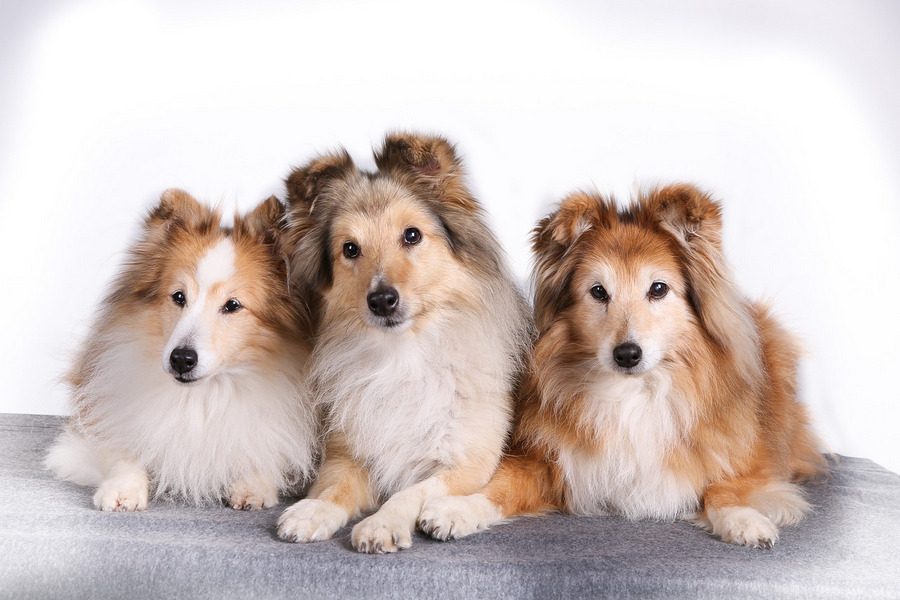
Medium Dog Breeds for Seniors
Medium-sized dog breeds are like the Goldilocks of the canine world, aren’t they? Not too big or small, but just right for many seniors.
Medium breeds offer the perfect balance for seniors who want a more substantial dog than a small breed but are still manageable and compatible with a quieter lifestyle.
So, what’s excellent about medium-sized dogs? They’re typically sturdy and robust, and they can make perfect companions for seniors who enjoy a moderately active lifestyle.
They can be great for long walks and even some light outdoor adventures. Plus, they’re still small enough to live in most living environments comfortably.
Now, let’s explore some top medium dog breeds for seniors.
1. Cavalier King Charles Spaniel
- Description and temperament – Known for their expressive, puppy-dog eyes and gentle nature, Cavaliers are often described as the quintessential lap dog. They’re friendly, adaptable, and they adore their human companions.
- Exercise and grooming needs – Cavaliers enjoy a good walk or a romp in the garden. Still, they’re also content with a cozy nap. Their beautiful, silky coat requires regular brushing, but their overall grooming needs are manageable.
- Health considerations – Cavaliers are generally healthy but can be prone to certain heart conditions, ear infections, cataracts, and syringomyelia.
2. Cocker Spaniel
- Description and temperament – Cocker Spaniels epitomize joy and enthusiasm. They’re incredibly friendly and eager to please, making them a delight to have around. Their expressive eyes and ever-wagging tail will brighten up any senior’s day.
- Exercise and grooming needs – Cockers are active and enjoy daily walks and playtime. Their beautiful coat does require regular grooming, but many owners find this a rewarding way to bond with their dog.
- Health considerations – Cocker Spaniels are generally healthy. Still, they can be susceptible to specific issues like ear infections due to their long, floppy ears.
3. French Bulldog
- Description and temperament – French Bulldogs, or “Frenchies,” are a breed that’s hard to resist. They’re affectionate, easygoing, and known for their distinctive bat-like ears. Their charming personalities and low noise level make them great companions for seniors.
- Exercise and grooming needs – Frenchies require minimal exercise, making them great for a more relaxed lifestyle. Their short coat is low-maintenance, requiring only occasional brushing.
- Health considerations – French Bulldogs are brachycephalic, meaning they have a short snout, which can lead to breathing issues. They’re also prone to hip dysplasia. Regular vet visits can help manage these potential issues.
4. Brittany
- Description and temperament – Brittany dogs are cheerful, intelligent, and eager to please. They’re known for their agility and love of outdoor activities, making them great companions for active seniors.
- Exercise and grooming needs – Brittany dogs are active and enjoy regular exercise, such as walks or playtime in the garden. Their coat is relatively low-maintenance, requiring only occasional brushing.
- Health considerations – Brittany dogs are generally healthy, but they can be susceptible to certain conditions like hip dysplasia.
5. Shetland Sheepdog
- Description and temperament – Often referred to as “Shelties,” Shetland Sheepdogs are known for their intelligence, agility, and caring nature. They resemble a small Rough Collie and are often described as sensitive and highly trainable dogs.
- Exercise and grooming needs – Shelties enjoy regular exercise and mental stimulation due to their herding background. Their beautiful double coat does require regular brushing, but many owners find this a rewarding way to bond with their dogs.
- Health considerations – Shelties are generally healthy. Still, they can be prone to certain conditions, such as hip dysplasia and eye disorders.
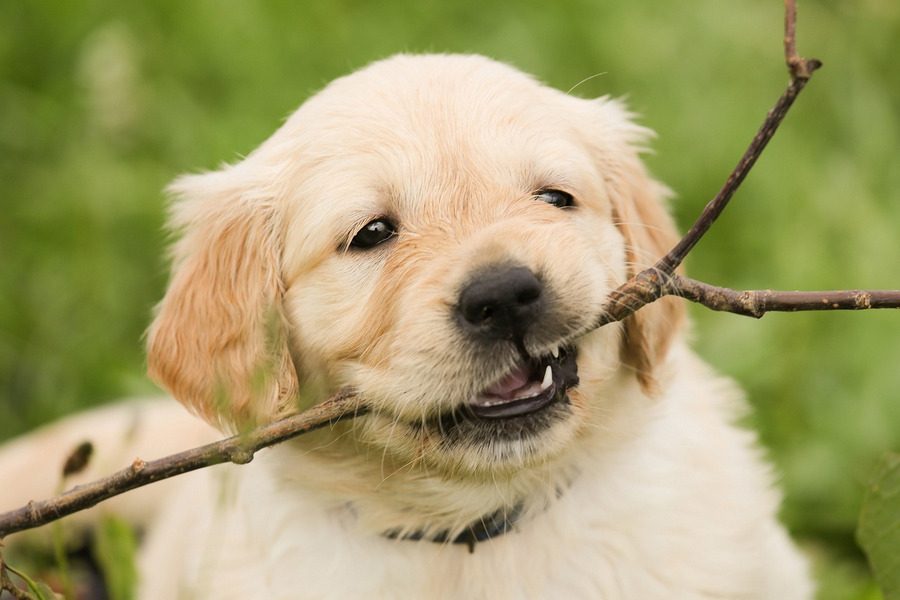
Large Dog Breeds for Seniors
And now we come to the big dogs, the large breeds that command presence with their size but win hearts with their gentle natures.
It’s a common misconception that large dogs aren’t suitable for seniors. Many large breeds have calm, patient temperaments that make them fantastic companions for the golden years.
One of the benefits of large dogs is their laid-back nature. Many larger breeds are relaxed and require less exercise than their smaller, more energetic counterparts.
They’re also easier to train in many cases, and their size can provide a sense of security that comforts many seniors.
Let’s introduce some top large dog breeds for seniors.
1. Labrador Retriever
- Description and temperament – Labrador Retrievers, or “Labs,” are known for their friendly and outgoing nature. They’re intelligent, eager to please, and get along well with everyone they meet.
- Exercise and grooming needs – Labs are active and enjoy a good walk or play session, but they’re also content to relax by your side. Their short coat is easy to care for, requiring only occasional brushing.
- Health considerations – Labs are generally healthy but can be prone to obesity if their diet isn’t properly managed. They’re also susceptible to genetic conditions like hip and elbow dysplasia, heart disorders, and eye issues.
2. Golden Retriever
- Description and temperament – Golden Retrievers are often considered one of the friendliest breeds. They’re intelligent, loyal, and have a love for life that’s truly infectious.
- Exercise and grooming needs – Goldens enjoy regular exercise, whether it’s a walk, or a game of fetch. Their beautiful, dense coat requires regular brushing, but their love for grooming sessions makes it a breeze.
- Health considerations – Goldens are generally healthy. Still, they can be susceptible to conditions like hip dysplasia, heart disease, and retinal atrophy.
3. Newfoundland
- Description and temperament – Newfoundland dogs, often called “Newfies,” are gentle giants. They’re known for their sweet, patient, and loving nature. Despite their size, they’re incredibly delicate and are often called “nanny dogs” due to their protective instincts.
- Exercise and grooming needs – Newfies aren’t overly active but enjoy regular short walks or play sessions. Their thick, water-resistant coat requires regular brushing to keep it healthy and looking its best.
- Health considerations – Newfies are generally healthy, but they can be prone to certain conditions like hip and elbow dysplasia.
4. Bernese Mountain Dog
- Description and temperament – Bernese Mountain Dogs are large, friendly dogs known for their excellent nature and beautiful tri-colored coat. They’re intelligent, gentle, and have a strong desire to please, making them great companions.
- Exercise and grooming needs – Bernese Mountain Dogs are moderately active and enjoy regular walks or playtime. Their long, it looking its best.
- Health considerations – Bernese Mountain Dogs are generally healthy. Still, they can be prone to conditions like hip and elbow dysplasia.
5. Greyhound
- Description and temperament – Despite being known as the world’s fastest couch potato, Greyhounds are incredibly gentle and docile dogs. They’re often misunderstood because of their racing background.
Still, they’re affectionate, easygoing, and love nothing more than a good snooze on a comfortable couch.
- Exercise and grooming needs – Greyhounds enjoy a good sprint in a secure area but are not high-energy dogs. A few short walks a day are usually enough for this breed. They have a short, thin, low-maintenance coat, requiring only occasional brushing.
- Health considerations – Greyhounds are generally healthy but can be prone to certain conditions like bloat. Their thin skin can also be susceptible to cuts and scrapes, so extra care might be needed when they’re out and about.
The Greyhound, with its gentle demeanor and love of lounging, could be an excellent companion for many seniors. They’re often described as ’45-mph couch potatoes’ for a reason!
Remember, the best dog breed is the one that complements your lifestyle and brings joy and companionship to your life. Enjoy your search for your new best friend!
The world of large dog breeds is filled with gentle giants that make wonderful companions for seniors.
It’s all about finding the breed that resonates with your lifestyle and personal preferences. Whether it’s the infectious joy of a Golden Retriever or the laid-back nature of a Cavalier King Charles Spaniel, there’s a perfect big buddy out there for everyone.
Whatever breed of dog you choose, regular vet check-ups are crucial for early detection and treatment of potential diseases.
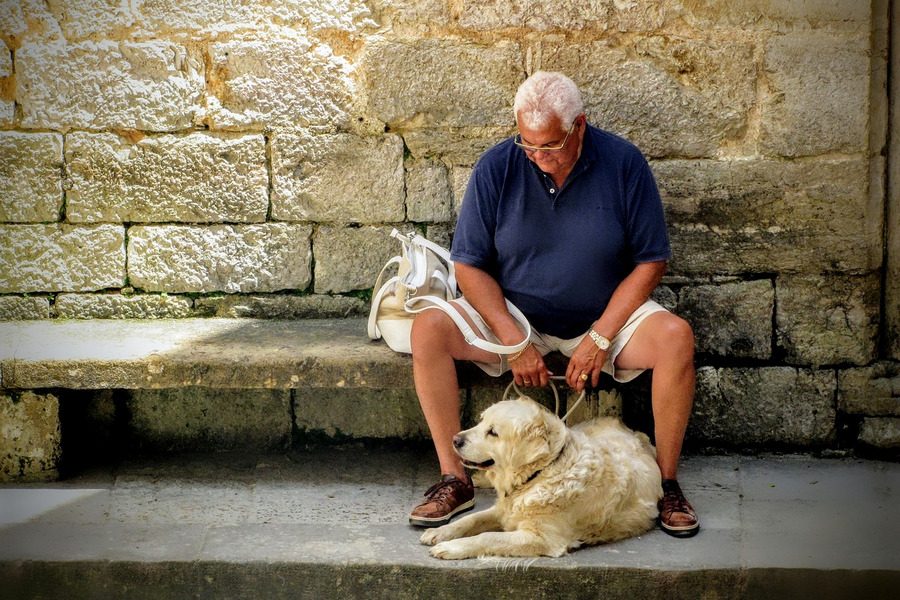
Special Considerations for Seniors
Choosing the right dog breed for seniors isn’t just about picking a favorite. It’s about matching a furry friend to specific needs and lifestyles. This isn’t a one-size-fits-all process, and several key factors can help guide this important decision. Let’s delve into some special considerations.
- Allergies and Hypoallergenic Dog Breeds – It’s important to consider allergies when choosing a dog, especially for seniors who might be more susceptible to allergens. Luckily, hypoallergenic breeds, such as the Poodle or the Bichon Frise, are known for producing fewer allergens, making them a good choice for those with sensitivities.
- Low-Energy and Low-Maintenance Dog Breeds – As discussed, breeds have different energy levels and maintenance needs. Seniors who enjoy a more relaxed lifestyle might prefer a low-energy breed like the Shih Tzu or Cavalier King Charles Spaniel. Similarly, breeds that require less grooming, like the Dachshund or French Bulldog, can be an excellent fit for those who prefer a less maintenance-intensive pet.
- Assistance and Therapy Dog Breeds – Some dogs do more than provide companionship; they can offer physical and emotional support too. Breeds like the Labrador Retriever and Golden Retriever are often used as assistance and therapy dogs due to their trainability and empathetic nature. These breeds can be especially beneficial for seniors needing extra help or companionship.
- Choosing the Right Size and Energy Level – Size does matter when choosing a dog. A large breed might be physically demanding for some seniors, while others might find a small breed too delicate.
It’s crucial to consider the senior’s physical capabilities and preferences when choosing the dog’s size. Similarly, the dog’s energy level should match the senior’s lifestyle. An active breed might be a good fit for a senior with an active lifestyle. In contrast, a less active breed might be more suitable for a more sedentary lifestyle.
Remember, the goal is to find a four-legged friend who can bring joy, companionship, and assistance into the senior’s life. Considering these considerations, the journey to finding the perfect dog will be much more targeted and fulfilling.
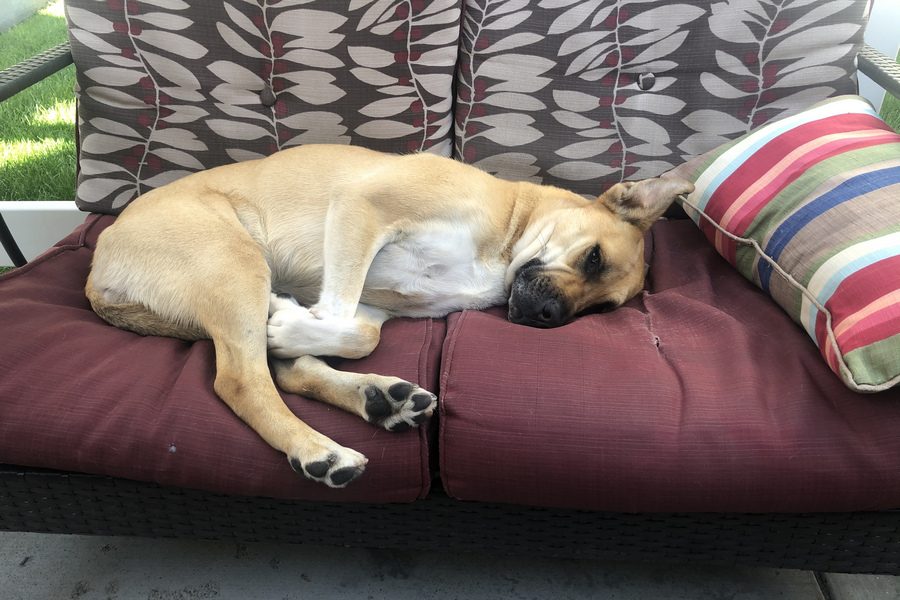
Dogs in Memory Care Facilities
Have you ever noticed the magic that unfolds when a dog waltzes into a memory care facility? It’s like the air gets lighter and the room brighter. Dogs bring a kind of therapy that works wonders on many levels.
For folks dealing with Alzheimer’s or dementia, a warm nuzzle or a wagging tail can spark some beautiful memories and feelings. These furry buddies have a secret power to turn a sometimes-unfamiliar place into a cozy, homey space.
Remember the joy of having pets around? Many residents do. They’ve had their four-legged friends in the past. So, when a dog pays a visit, it’s like opening a lovely memory book of happy times spent with their pets.
But the magic doesn’t stop there. Dogs are like personal trainers with fur coats. They get folks moving, even if it’s just a leisurely walk around the facility or a simple stroke of their soft fur. It’s all about gentle exercise and keeping those motor skills in tip-top shape.
And let’s remember the social spark dogs ignite. Suddenly, residents chat, laugh, and share stories – thanks to their furry icebreaker. It’s a beautiful sight, especially for those who might often prefer their own company.
Of course, the dogs that bring this joy to memory care facilities aren’t just any dogs. They’re canine superheroes, trained and temperament-tested to ensure they’re as cool as cucumbers, no matter what comes their way.
This is super important, as it makes everyone, both two-legged and four-legged, feel safe and comfortable.
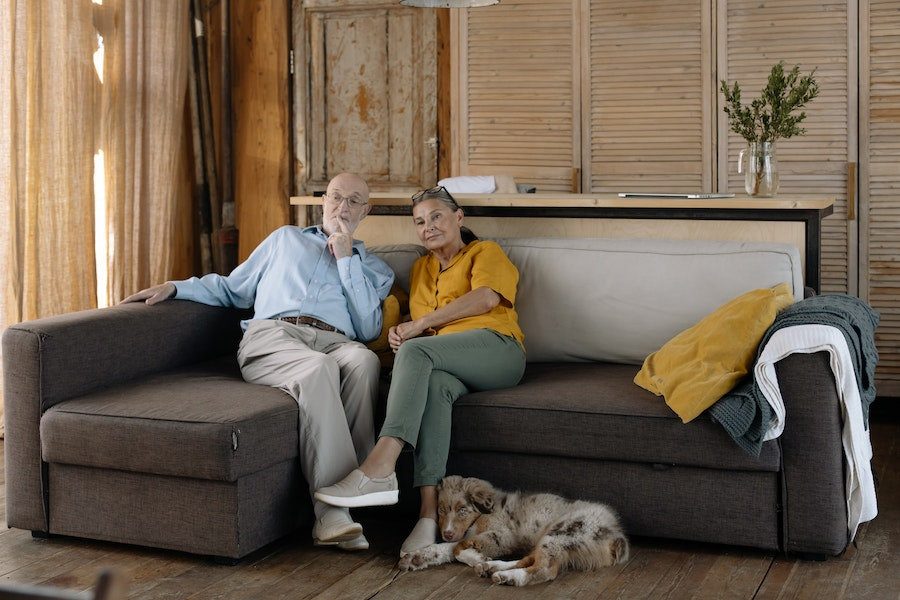
The Best Dog Breeds for Seniors - Conclusion
And there we have it! We’ve covered the beautiful world of canines, exploring the best dog breeds for seniors, from the petite Shih Tzu to the majestic Golden Retriever. We’ve discovered the joys of small dogs, the balance of medium breeds, and the gentle giant hearts of larger breeds.
And let’s remember our special considerations, like hypoallergenic breeds for those with allergies, low-energy dogs for a relaxed lifestyle, and the potential for assistance and therapy dogs to bring comfort and support.
But remember, while we’ve discussed some great breeds today, the best dog breed for any senior is the one that fits their lifestyle, health, and personal preferences. It’s the one that matches their pace of life, shares their living space comfortably, and connects with them on a deeper level.
It’s about companionship. It’s about finding a furry friend who can bring a wagging tail to the quiet days, a comforting presence to the lonely moments, and unconditional love to every day.
So, whether you’re a senior looking for a canine companion or searching on behalf of a loved one, remember to enjoy the process. Finding the perfect dog can be filled with as many precious moments as the destination.
In the words of Roger Caras, “Dogs are not our whole life, but they make our lives whole.” So, here’s to finding that special dog who will make life much richer. Happy searching, dear friends, and may your days be filled with wagging tails and doggy kisses.
Applewood Our House has five assisted living and memory care homes in the Denver area. We are pet friendly and have resident house dogs at each location.
We love animals and pet therapy is a part of our ongoing activities at Applewood Our House.






